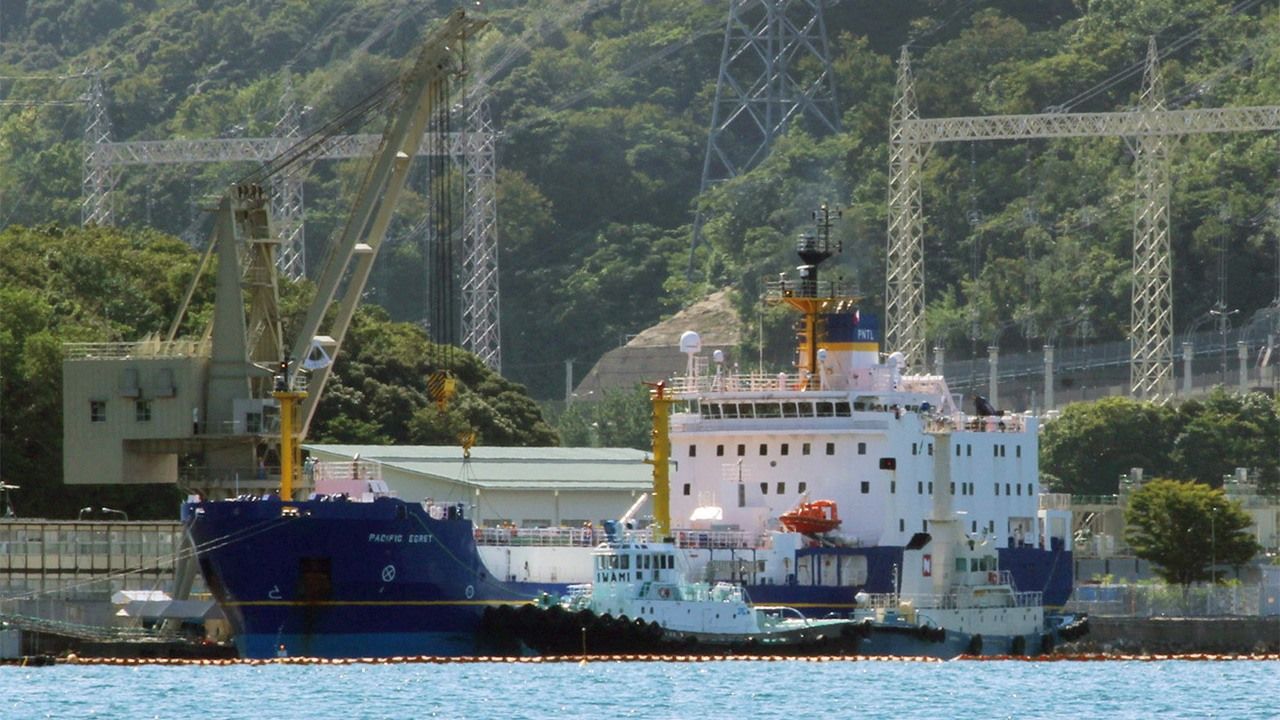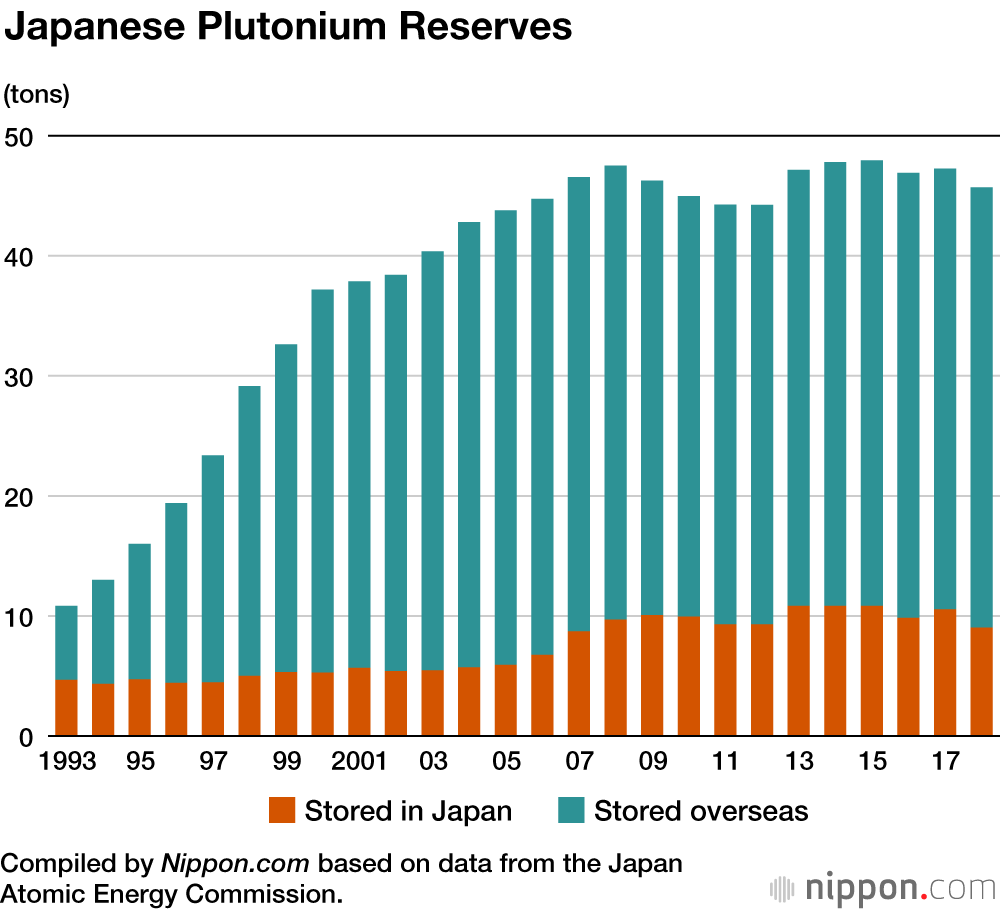
Japan’s Plutonium Reserves Decrease Slightly but US Concerns Remain
Technology Science Politics- English
- 日本語
- 简体字
- 繁體字
- Français
- Español
- العربية
- Русский
As of the end of 2018, Japan’s plutonium reserves were 45.7 tons, according to the Cabinet Office’s Atomic Energy Commission, after a year-on-year decrease of 1.6 tons. Japan had domestic reserves of 10.5 tons, as well as 36.7 tons entrusted for reprocessing by Britain and France, as of the end of 2017; but its domestic reserves decreased over the following year because plutonium was reused in uranium-plutonium mixed oxide (MOX) fuel for pluthermal power generation.
Plutonium is strictly managed internationally because it can be used to make nuclear weapons. Although a nonnuclear country, Japan has been allowed the exceptional right to possess large quantities of plutonium extracted from the fuel of its nuclear power plants because it is reused as MOX fuel aimed at closing the “nuclear fuel cycle.” It has also been suggested, however, that the Cold War was another motivation for stockpiling. Japan’s plutonium reserves increased from around 10 tons in 1993, to 40 tons by 2003. And the reserves have exceeded 45 tons since 2013, which is sufficient to make 6,000 atomic bombs.
This has raised concerns in the United States that the risk of nuclear terrorism will be heightened if other countries imitate Japan’s approach by using the nuclear fuel cycle as a justification for possessing plutonium. The US Congress and others have been calling for Japan to address the situation. In July 2018, at the time of the renewal of the US-Japan nuclear cooperation agreement, the US side requested that Japan strive to reduce its plutonium reserves. In response, the Japanese government decided on a policy so that the reserves would not exceed the level at the time, which was roughly 47 tons.
However, thoroughly implementing a policy of reducing plutonium reserves is not easy. In the wake of the 2011 Fukushima nuclear disaster, which led to strict regulations on the restarting of nuclear power plants, it has become difficult for Japan to rapidly increase its consumption of plutonium. Moreover, the use of plutonium for processing MOX fuel, which was a reason to increase reserves, has also been restricted since the disaster, which raises the risk of the accumulation of spent nuclear fuel.
(Translated from Japanese. Banner photo: A transport ship delivering MOX fuel to Kansai Electric Power Company’s Takahama Nuclear Power Plant. © Jiji.)
